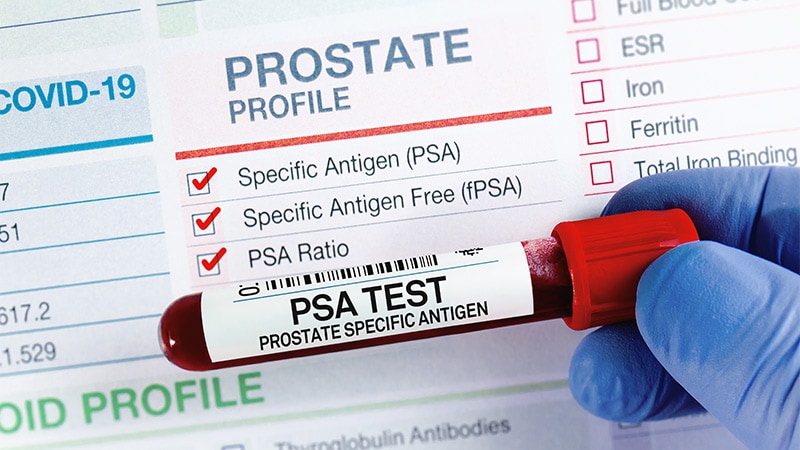Takeaway
- Single PSA screening detects more prostate cancer (PCa) cases but has no significant effect on PCa mortality after a median follow-up of 10 yrs.
Why this matters
- PCa screening remains controversial.
- The current findings do not support single PSA testing for population-based screening.
Key results
- 4.3% of men in the intervention group were diagnosed with PCa vs 3.6% of controls (RR 1.19; 95% CI 1.14-1.25; P<.001).
- Between-group difference for incidence rate was 0.65/1000 person-years (95% CI, 0.52-0.78; P<.001).
- Incidence rates were 4.45 per 1000 person-years (95% CI 4.36-4.55) in the intervention group and 3.80/per 1000 person-years (95% CI 3.72-3.89) in controls.
- Those in the intervention group were younger at diagnosis (−1.34 yrs; 95% CI −1.59 to −1.10; P<.001), and were less likely to have high grade (odds ratio [OR] 0.68; 95% CI 0.64-0.73; P<.001) or advanced (OR 0.68; 95% CI 0.62-0.75; P<.001) cancer.
- Adherence-adjusted causal rate ratio (RR) was 0.93 (95% CI 0.67-1.29; P=.66).
- No significant difference in all-cause mortality between groups (RR 0.99; 95% CI 0.94-1.03; P=.49).
- Among 549 men in the intervention group who died of PCa, 188 (34%) had attended for PSA screening clinic.
- Lethal cancer had not been identified by the single PSA testing in 69%.
- Of these 129, 68 had PSA <3.0ng/mL at screening.
Study design
- Cluster Randomised Trial of PSA Testing for Prostate Cancer (CAP) among 419,582 men aged 50-69 yrs carried out at 573 primary care practices across the UK.
- Funding: Cancer Research UK, Department of Health, National Institute of Health Research.
Limitations
- Only 40% adherence to intervention. Median follow-up of 10 yrs may be too short to identify the effect of screening.
References
References



